COVID-19 pandemic has come with lessons for everyone around the world. It has not only shown that even the strongest economies can be severely shaken by just one public health emergency, it has also revealed that the best health systems in the world can be taken unawares by infectious disease outbreaks. Countries in Europe and America that are considered the best in terms of health care delivery have struggled to contain COVID-19. For developing countries, whose health care systems are considered weak, the pandemic has not only exposed this weakness but has also forced citizens of these countries, who normally sought their healthcare from developed countries, commonly known as medical tourism, to look inwards, due to the global shut down of international travel.
It is estimated that medical tourism costs the Nigerian economy more than one billion dollars annually, with thousands of Nigerians traveling abroad for medical care every year. Citizens of developing countries embark on medical tourism for different reasons, including the opportunity to get assessed and treated at standard health care facilities, with skilled specialists, quality equipment and infrastructure which are often lacking or inadequate in developing countries. many of Nigeria’s health care facilities, especially public facilities, are suffering from age long deterioration from lack of needed financial investment over the years. Not only are the facilities short of adequate personnel including medical specialists, both infrastructure and equipment are also in decay.
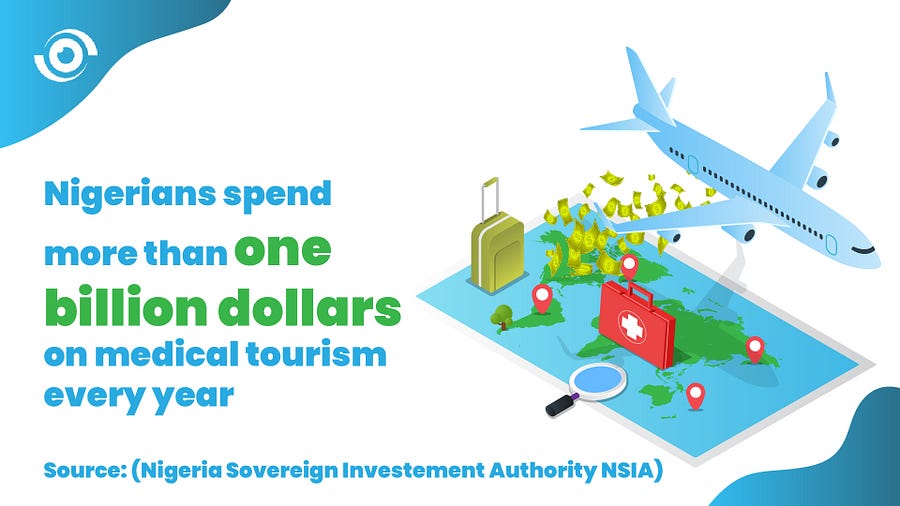
As much as COVID-19 pandemic has exposed the weakness in our health care system, it has also given us the opportunity to not only strengthen the system but also to take note of health care facilities that provide standard and quality services that are at par with facilities in developed countries. One such facility in Nigeria is the Afe Babalola Multi Systems Hospital (AMSH).
Located in Ado-Ekiti the capital of Ekiti state, AMSH is a 400-bed teaching hospital affiliated to Afe Babalola University, one of Nigeria’s foremost private tertiary educational institutions. The hospital was established in 2018 to serve as a centre of excellence in health care delivery and education, as well as bridge the critical gap in health care investment in the country. Its establishment was supported by the African Development Bank (AfDB) with a loan of $40million (N14.6billion) to Afe Babalola University, the first non-sovereign (non-government) loan by the continental bank in Nigeria.
PharmAccess Foundation, an international non-profit organization committed to improving access to quality health care, is supporting Afe Babalola University Multi-System Hospital to implement the internationally accredited SafeCare Standards. SafeCare holistic methodology empowers health providers to continuously monitor and improve service delivery through innovations that promote transparency and benchmarks quality. Since its establishment, the hospital has been providing specialized medical treatment and procedures such as cancer diagnosis, cardiac and thoracic surgeries amongst others.
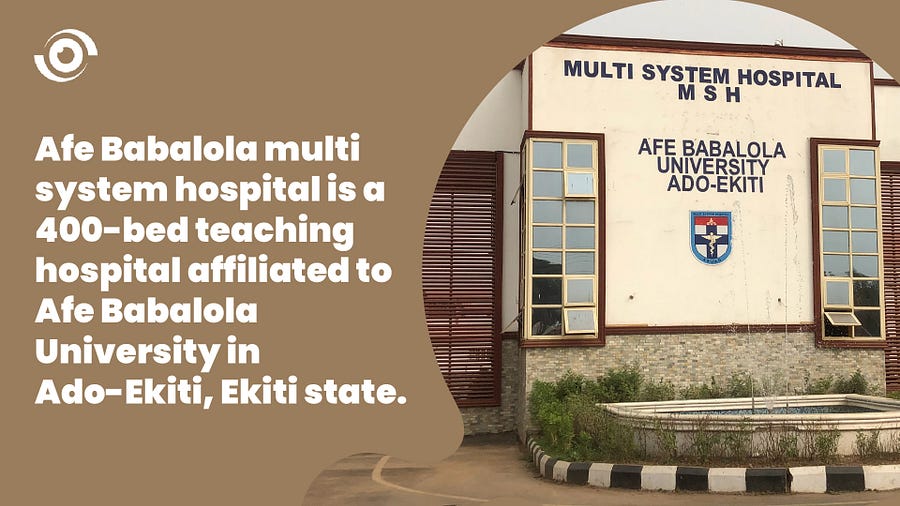
An all-round medical facility
Departments are what make up a hospital, especially secondary and tertiary hospitals. Departments are dependent on each other for the provision of services. AMSH boasts of many medical specialties required of a specialised, educational health facility, with every department well-staffed, well equipped and functional. Some of the specialty departments include accident and emergency (A&E), surgery, internal medicine, paediatrics, obstretrics and gynaecology, community medicine, physiotherapy and dentistry among others. These departments provide day to day inpatient and outpatient care to clients, as well as opportunity for hands-on learning for medical students of Afe Babalola University.
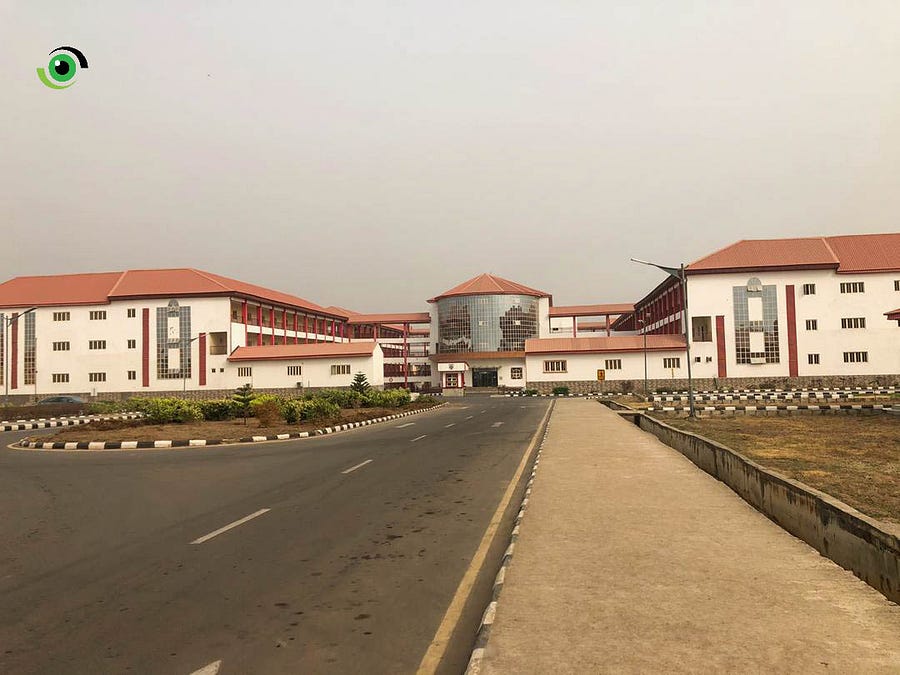
A world class diagnostic centre
One of the challenges health care facilities in Nigeria face is the lack of proper equipment to aid prompt diagnosis. Medical equipment is as important as any other segment of health care delivery. The challenges of inadequate diagnostic equipment are numerous, including late and improper diagnosis, pressure on care providers and their patients, and many more. The medical diagnostic centre put in place at AMSH is top quality. Managed by Abbot Laboratory, the centre is equipped with CT, MRI, X-Ray and Ultrasound scanners. The centre performs examinations such as fluoroscopy, bone densitometer, bronchoscopy, gastroscopy, echocardiography, Arthroscopy, endoscopy and colonoscopy among others.
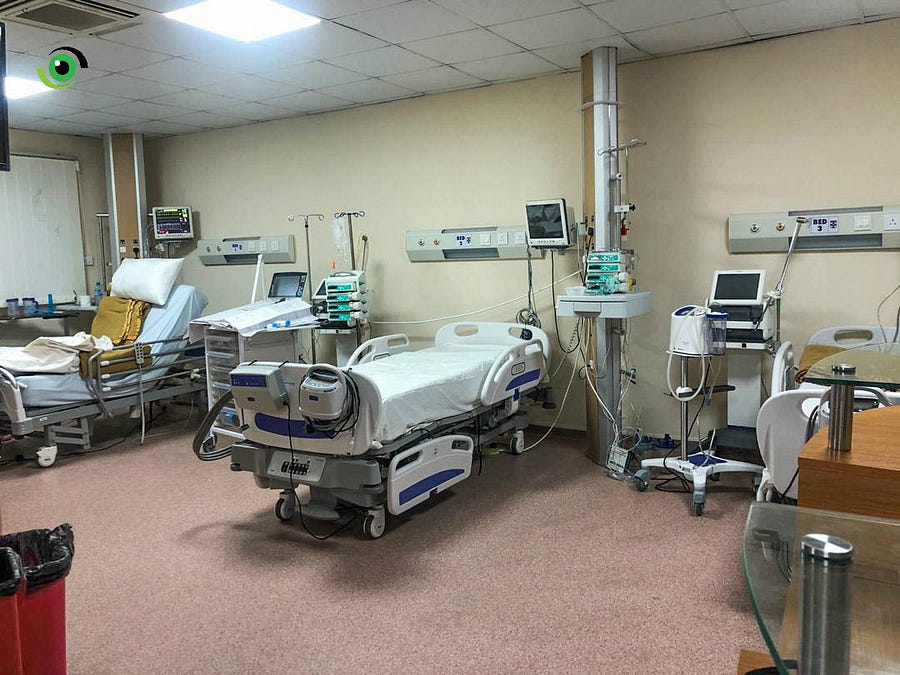
Top notch cardiac and kidney centres
Heart and kidney complications are some of the most complex medical conditions to manage. They often require continuous and timely care, and sometimes surgical procedures. Together with oncology and orthopaedics, heart and kidney complications are the reason for up to 60% of Nigerians traveling abroad for health care. Even though hospitals in Nigeria have made tremendous progress in these specialties, including preforming kidney transplants and open-heart surgeries, gaps still exist between the demand and supply of these services in the country. These specialities however are part of the healthcare provided at AMSH.
With a cardiac centre managed by Tristate Healthcare system, over 50 heart surgeries have been conducted in the hospital for all age groups. According to Professor Kamar Adeleke, the Chief Executive Officer of Tristate, the cardiac centre boasts of equipment required to perform all kinds of heart surgeries. ‘’We have performed both open-heart and closed-heart surgeries in the centre, and for different categories of patients. We have a modular theatre with all the required equipment. It’s a whole package,’’ he said. The cardiac centre also has two mobile dialysis machines to support patients having both cardiac and kidney complications and require dialysis. The hospital’s kidney centre is another trademark of quality installed, with 16 new dialysis machines to support its operation.
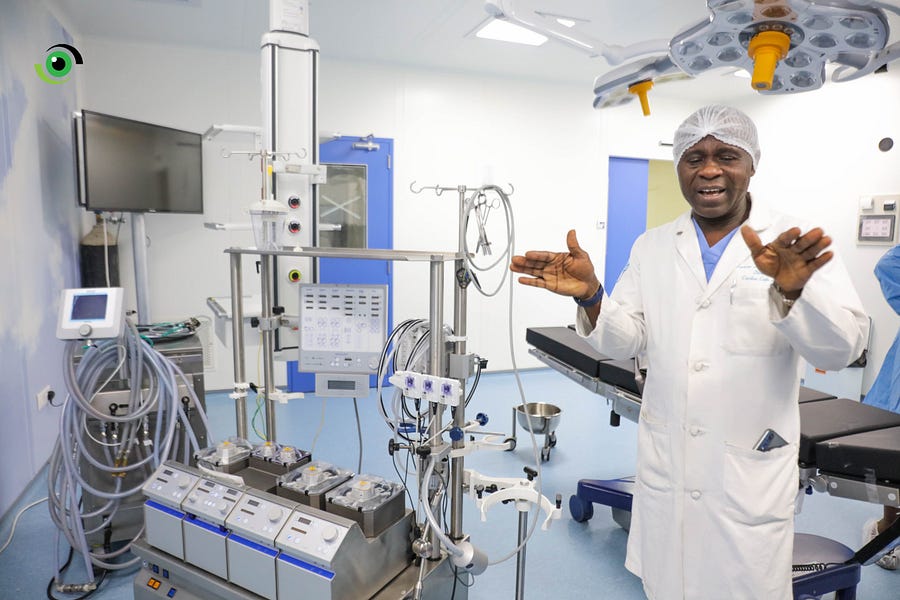
Engendering emergency care & hospitality
Medical emergencies often require prompt medical attention, and so require immediate access to health facilities. This however is only possible with prompt evacuation of patients to hospitals where they can receive life-saving treatments. Also, ensuring patients have access to health facilities when they need it is one of the many requirements for a well-performing healthcare delivery system. This access can be accomplished through different ways, including road and air means. AMSH currently enjoys both, as it is connected to the state capital of Ado-Ekiti by a well tarred road and is just 45 minutes’ drive from Akure International airport in Ondo State. In addition, AMSH has a helipad for evacuation of patients to and from the hospital by helicopters, if the need arises. To ensure comfort of both patients and their relatives, the hospital has an in house 50-room hotel for patients’ relatives to stay while the patients are receiving treatment, and for patients to recuperate fully after being discharged before going home.

Bridging the quality gap
When it comes to healthcare, access and quality must never be compromised. These two are important in healthcare delivery alongside affordability and availability. These four form the most cardinal characteristics of the health system. The availability and accessibility of quality health care ensures the delivery of safe and effective treatment for clients, and optimal satisfaction for the caregiver.
With COVID-19 pandemic forcing us to look inwards, health facilities like AMSH could be safe havens even after the pandemic has passed. The hospital, like many others, is reimagining healthcare delivery in the country, and they can only get better with the needed trust, patronage and investment from Nigerians. As various privately-owned health facilities are coming up across the country, the federal and state governments must increase investments in public facilities. Aside improving affordability, this will also drive healthy competition in the health sector and provide citizens with more options. The federal government’s investment of $10 million through the Nigerian Sovereign Investment Authority (NSIA) to establish a cancer centre at the Lagos University Teaching Hospital is a good start; and a $5.5 million Umuahia Diagnostic Centre (NUDC). These gestures must now be complemented and replicated in major tertiary hospitals to stem the tide of medical tourism, and most importantly ensure that Nigerians have access to quality health care when they most need it.

Setting up state of the art specialist health care facilities requires significant financial investment. AMSH could probably not have been a reality without the financial support from AfDB. With a population of over 200 million people, more privately-owned facilities are needed to reduce the burden on publicly owned ones. This however can only be achieved with government support. Providing credit schemes to individuals and organisations intending to establish such facilities will spur investments in the sector. The federal government could complement its import waiver for medical equipment announced in May 2020 with such scheme. However, as private health facilities like AMSH strive to bridge the gap in the provision of quality health care in the country, they must consider the socio-economic status of most Nigerians. Medical care, especially specialised care should be made more affordable so that people do not have to go through financial crisis to afford them. This also highlights the need for continued investment towards strengthening Universal Health Coverage (UHC) in Nigeria. UHC presents a win-win for both the health facilities and citizens seeking health care, as more people will be able to afford care, and health facilities will have steady financial inflow to continue providing services.
Do you know of other facilities providing incredible quality healthcare in Nigeria? Let us know in the comment section or drop us a comment on Twitter @nighealthwatch and on Facebook and Instagram @nigeriahealthwatch.


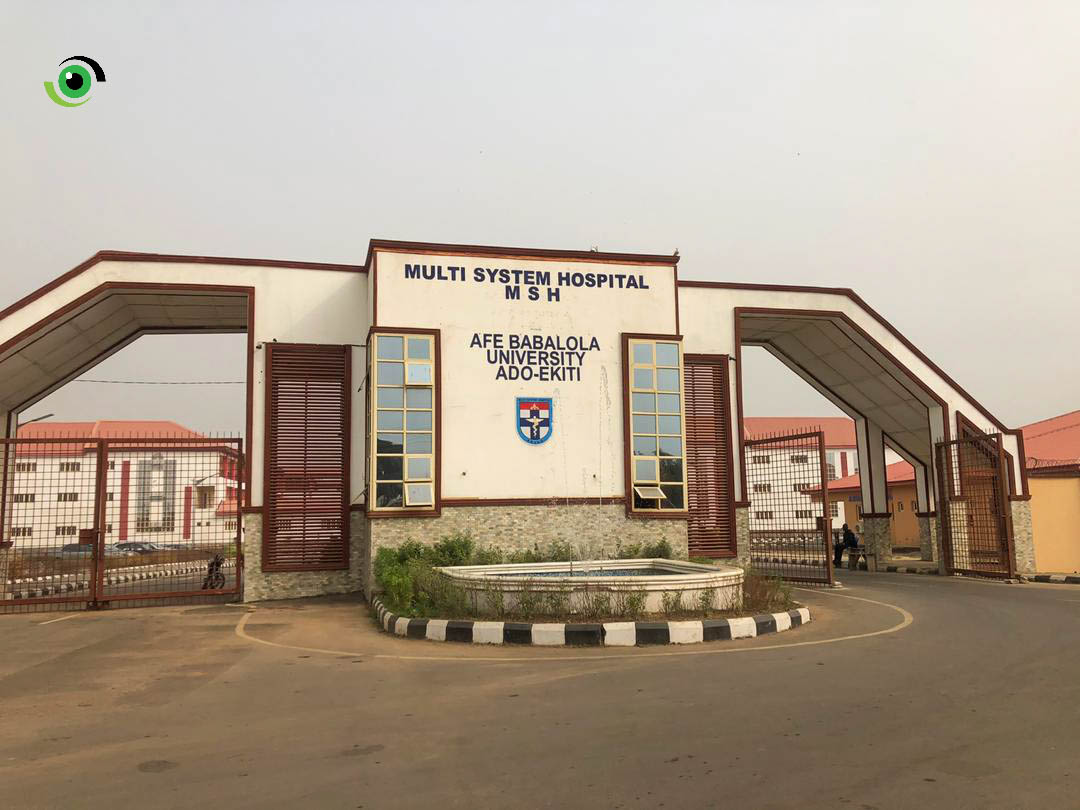
It is so gratifying to know that credible private individuals and organisations are investing so heavily, and shall I say appropriately, in the establishment of first class health institutions that would provide excellent medical care within the boarders of our country and thus, among others, reduce the crave for medical attention abroad either for routine check ups or to meet acute emergencies. I thank and congratulate the Aare Afe Babalola for this wonderful venture and pray that the almighty God blesses him and the Establishment. While private organisations and individuals are, for obvious reasons, concentrating on tertiary health care, government should use the relief that this offers to strengthen PHC which is the vehicle that will cater for the health needs of the generality of Nigerians. In this respect, ensuring that the Universal Health Coverage, which obviates the need for payment at the point of service is widely available to Nigerians, becomes a priority.
This is wonderful. Can please have the contact email to the hospital incase I wish to book a visit for consultation.
Thank you so for sharing this great information.
Medical tourism, stemmimg the tide, keeping the money back in Nigeria. Is there a way of tracking every patient seen at all such centres and identifying how and at what point in a health system, what these centres manage could have been prevented or treated? Can a business guru do the calculations on the economic sense? UHC and leaving no one behind is about getting the community and primary care right, knowing and dealing with the socio economic determinants of health, especially the commercial determinants of health of which the out of pocket payments is the painful unseen bottom of the iceberg. Can the MSH address the Ekiti state population’s health and strengthen the health system so that the MSH really deals with what could not be managed at community, primary, and secondary levels? Then will it earn its position as an apex of health care, then the investment would make health sense.
This is a high Class Teaching Hospital for Medical Student in Afe Babalola University.
It is a Good Health Care delivery system for the entire Country and the African region.